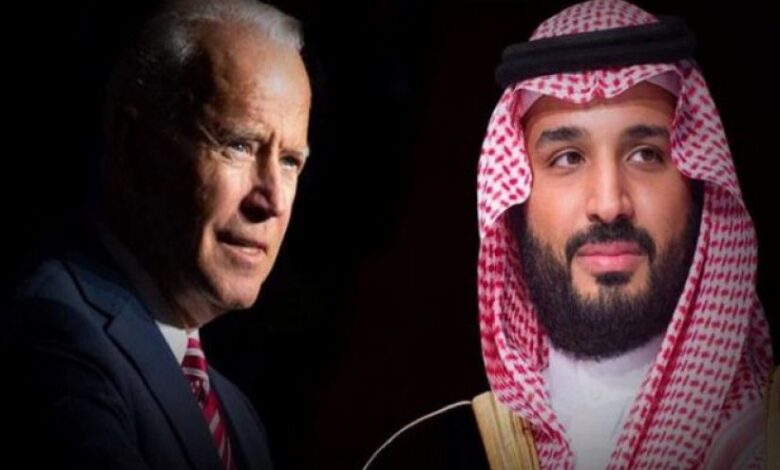
The Quincy International Institute said that the continuation of military deals with Saudi Arabia undermines the foreign policy of the administration of U.S. President Joe Biden.
The Institute stated that the Biden administration’s foreign policy in its first year was often determined by an unwillingness to make major policy changes and take significant political risks to follow through on the president’s campaign pledges.
The important exception, of course, was Biden’s wise decision to withdraw U.S. forces from Afghanistan, which stands out most as one of the few occasions on which the president has gone against the prevailing view in Washington.
However, on almost every other issue, the Biden administration has been very cautious and content with accepting the status quo, even as the president and his officials condemned the Trump-era policy as an apparent failure.
There has been a sharp increase in stressing support for human rights in the administration’s rhetoric since Trump left office, but one searches in vain for examples of how Biden has made human rights central to his foreign policy.
This was most noticeable in the resumption of arms sales to Saudi Arabia, and the United Arab Emirates as their war on Yemen continues unabated.
Despite credible accusations that the Saudi and Emirati governments used US-made weapons to commit war crimes against civilians, the Biden administration approved new arms and maintenance contracts for the Saudi military. It allowed a $23 billion arms sale to the UAE.
Now that the UAE has lost interest in the sale because it comes with many security restrictions, the decision to allow the sale to go ahead looks even worse.
No one expected Biden to preside over a radical reform of American foreign policy. Still, even when measured by a more modest standard, his foreign policy did not deliver what his supporters reasonably expected.
In Yemen, Biden made some encouraging early moves that indicated his administration was serious about changing course. Still, as the year went on and Yemen’s suffering worsened, it became clear that little change in U.S. policy had been.
There has been little pressure on the Saudi coalition to end the killing siege, and the United States is providing the Saudi military with more missiles that it can use to enforce this blockade from the air.
It was never likely that Biden would treat Saudi Arabia as a “pariah,” but the accountability promised by the U.S. president never materialized.
The Trump administration’s use of economic warfare to impose sanctions on entire countries was one policy that was crying out for immediate changes, but this is also one that Biden has not changed.
Extensive sanctions imposed on Venezuela, Iran, Syria and North Korea remain in place. There has been no urgent need to lift any of them despite their harmful effects on the population during the pandemic.
The Biden administration’s lengthy review of sanctions policy was remarkable for how little the administration had to show in its nine months of effort.
After the Taliban seized power earlier this year, Afghanistan is now exposed to the devastating effects of the same kind of economic war the United States has been waging on other countries for years.
The administration’s refusal to offer even symbolic sanctions relief for humanitarian purposes has been a major sticking point in talks to salvage the JCPOA.
That’s because Iran has continued to scale back its compliance with the nuclear deal in protest of “maximum pressure” sanctions and sabotage attacks on its program. The Biden administration will not budge on sanctions relief until Iran is back in full compliance.
This has created an unfortunate test of wills as neither government wants to take the first step to break the stalemate, and the result is that the JCPOA is slowly being quelled. At the same time, a mutually beneficial solution stares everyone in the face.
For an administration that has embraced its diplomatic skills and bragged that “diplomacy is back,” the failure to rejoin and salvage the JCPOA is perhaps the year’s biggest disappointment and most consequential.
There is still the potential for more productive talks in 2022, but it doesn’t look promising without some meaningful concessions from the United States on sanctions relief.
If the second year of the Biden administration is to be more successful than the first, it will need to take more risks and accept more short-term criticism to advance American interests abroad.
Dealing with Russia to defuse the crisis over Ukraine will be controversial in Washington and some allied capitals, but it is necessary to reduce tensions and avoid worse outcomes.
Pressuring Saudi Arabia to end the blockade of Yemen will spur more complaints from hawks in Congress, but that’s what must happen if the United States is to help end the misery caused by the U.S. government’s support for the war.
The administration also needs to take a more serious look at the policies it inherited from Trump. If they understand that the “maximum pressure” sanctions have been a fiasco across the board, they should lift or suspend them as much as possible.
The Biden administration should not simply maintain the Trump-era policies for the next three years because they fear the political backlash from hawks who will attack them in the harshest terms no matter what they do.